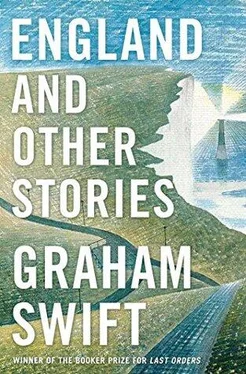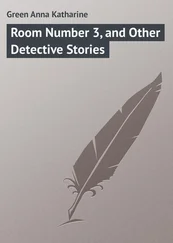How does it go, Ned? ‘If this were seen, the happiest youth, viewing his progress through, what perils past, what crosses to ensue.’ I am an old man. I read by a winter fire. But I freely admit I was ambitious too. My cause was the advancement of learning, but it was also the advancement of myself. Did I marry my late wife because I wished her to be my wife or because I wished to be the husband of the daughter of the late Queen’s physician? It opened more doors than my laurels from Padua. Yet how I miss her, my dear Liz. My late Liz. Late! It is the only word now for us, now we have passed our three score and ten. All is late. Though you may think, if God (and your physician) grant you health, that you are now but in your earliness, your newness. Do we not have a new world? Is this not the seventh day of its creation?
Ambition, Ned, it was our common spurring in our separate courses. Shall we confess it? And shall we confess that for a while, for a good long while, my ambition outrode and was better stabled than yours? Now shall we see where the ambition of your master Cromwell — but I must call him master too — will take him and how it may serve and accommodate yours.
What times, what times. It is now I who must sit aside, withdraw and retire, taking shelter as I do in my brother’s house. It is I who must content myself with my books and studies, I who once accompanied kings. Yet I want no more. You will perhaps smirk to know that my studies remain upon the reproduction of our kind and of the animals at large. What food for mirth and raillery have I given my enemies and detractors — who are still many and persistent — that I, an old man both wifeless and childless, should dwell upon such stuff. How they must snigger at me as we once sniggered behind the backs of our schoolmasters.
Yet I would know, Ned, perhaps before I die, how we are born, how we are shaped for the world. Leave that, some will still cry, to the doctors of divinity, tread not upon that holy ground. So are we not alike there? Do you not discern it from your present elevation? We both came moulded with the rebellious, some might say heretical, disposition to trespass upon sacred soil. In the interests, to be sure, of truth and justice. And of ambition?
I was no prostrate worshipper in the church of kingship, no more than you, but my interests, or shall I say the interests of learning, made me seek their best protection. Is it not at least food for thought for you that our late king, tyrant, traitor and murderer, who clung so much to his own divine prerogative, was yet the patron of so much that assailed the sacrosanct? And is it not also food for thought for you that those of your party who once so boldly and blasphemously rose up against him are now entrenched in their own sanctimonies? Do I blaspheme now? Will you arraign me?
The bones of human contention! Why did I hold back for some dozen years the publication of my findings, my De Motu Cordis ? Because I lacked courage, I confess it, because — I should say this! — I was weak of heart. Because I knew it would bring down upon me the learned heavens, if not other powers-that-be. It would bring me enemies. And lose me valued practice. And so it did, and still does. There is heresy and heresy, there is dogma and dogma.
How well I remember, Ned, when we last spoke together. It was some eight years past. It was at your table. There were the bonds of our kinship and of our friendship and of host and guest, yet I felt a broil simmering. There was the whiff of smoke. You said there was a time approaching when every man would have to make his stand. Of whose party was he? I said may not a man make a stand, and a stout one, of being of no party? You said that was no stand at all. Or rather, as I recall, you said it was not the stand of a man but of a tree. Would I be a tree and not a man?
It was late August and your windows were flung open upon the view of your orchard, a whole regiment of trees, hung with blushing apples. ‘No, Ned,’ I said, ‘I am not a tree, but let trees still decide the matter. I too have an orchard. Let us not quarrel over whose apples are the sweeter, though over lesser things men have sometimes come to blows, but here is the true quarrel: if you or any man or any man’s party were to invade my orchard, cut down my trees and trample my land, why then I would be of the opposing party. There would be my allegiance.’
You would not take this for an answer (nor in all honesty did I think it quite sufficient). You said, ‘Well there you have spoken wisely, Will, since the King already cuts and tramples through the orchard that is his kingdom, claiming it as his right to do so and that it is no man’s land but his own. Is not then your allegiance decided?’ There was a smile upon your lips, but there was a smouldering in your eyes. You poured another cup of ale. You said, ‘There will come a time, Will, there will come a time.’ I should perhaps have said nothing, but I said, ‘Then let us hope that time does not come tomorrow, or the day after. And let us hope that when it comes we do not fall out upon our cousinship, no matter which party we choose.’ I said, ‘I am a doctor, Ned, I must minister to all parties.’
But you would not take that for an answer either, or your eyes would not. I had not seen them burn so before. You plainly deemed, but did not say, that for certain causes even a doctor must throw aside his phials, as a lawyer must throw aside his books of law, and buckle on armour. How little I or you knew, Ned, that one day soldiers of your party would enter my chamber and ransack its contents, casting hither and thither my precious notes, papers and experiments. There was my orchard for you, there was my party confirmed.
But, not to skirt about the nub of the matter, how could I say that my party was already chosen for me? As you knew it was. How could I, who was physician to the King, who knew the King’s very body as no other man knew it, be of any party but the King’s? It was scarcely a case of cause or principle. But how, equally, could I have said that I noted that fire in your eyes? I noted it as a physician notes symptoms. It was the fire of your cause, I grant you, but it was the fire also of envy. It was the fire of an ambition not yet rewarded, and overtaken by another’s eminence. And such was the fire — I can say this, now you enjoy your own eminence — that lit the eyes of many of your ranks, cause or no cause.
Orchards! Kingdoms! How could I have said, without seeming to speak like my master the King in his worst haughtiness, that my party was of bigger things? It is a small entity, the heart, it is a small allowance, the blood of any creature, yet to every creature it is the All of life. I was born, you know this, Ned, in Folkestone, which looks across to the Continent. How could I have said that I was of the Continent’s party, I was of the world’s party? England is but a small country, albeit my own. Why did I journey to Padua? How could I have said that I was of Fabricius’s party, nay of Galileo’s, whose noble hand I have clasped? Knowledge is vaster than kingdoms and, while kingdoms come and go, is the only true arbiter of the times. How could I have said this to you, a lawyer and counsellor to members of Parliament (did you not have, even then, your modicum of eminence?), without adding fuel to that fire? I can scarcely claim the licence of old age to speak it now.
I care not for kings. I cared for the King. I knew him well. I was charged with the King’s body, not with the body politick. It was a small and slight body, for all its loftiness of position and mien. It was stunted by rickets. It was a body indeed that was sniggered at. How many of your party knew so well your enemy, knew his fleshly infirmities as well as his kingly towerings, knew his private graces? When I attended his hunts he would set aside for me so much of his quarry, his stags, hinds and hares, as I might want as fresh matter for my dissections. He did not trample on the advancement of learning, nor even on the defying of Galen. When he took up his headquarters in Oxford he ensured I should have place and time for my studies. It was his fortress of war, but still a seat of learning. True, Ned, I was a Caius man, before Cambridge was Parliament’s school, who found sanctuary in Oxford. Did I choose my party? I was made, by the King’s wish, Warden of Merton. You were made Colonel of Horse. We find our places, Ned, we find our colours.
Читать дальше












